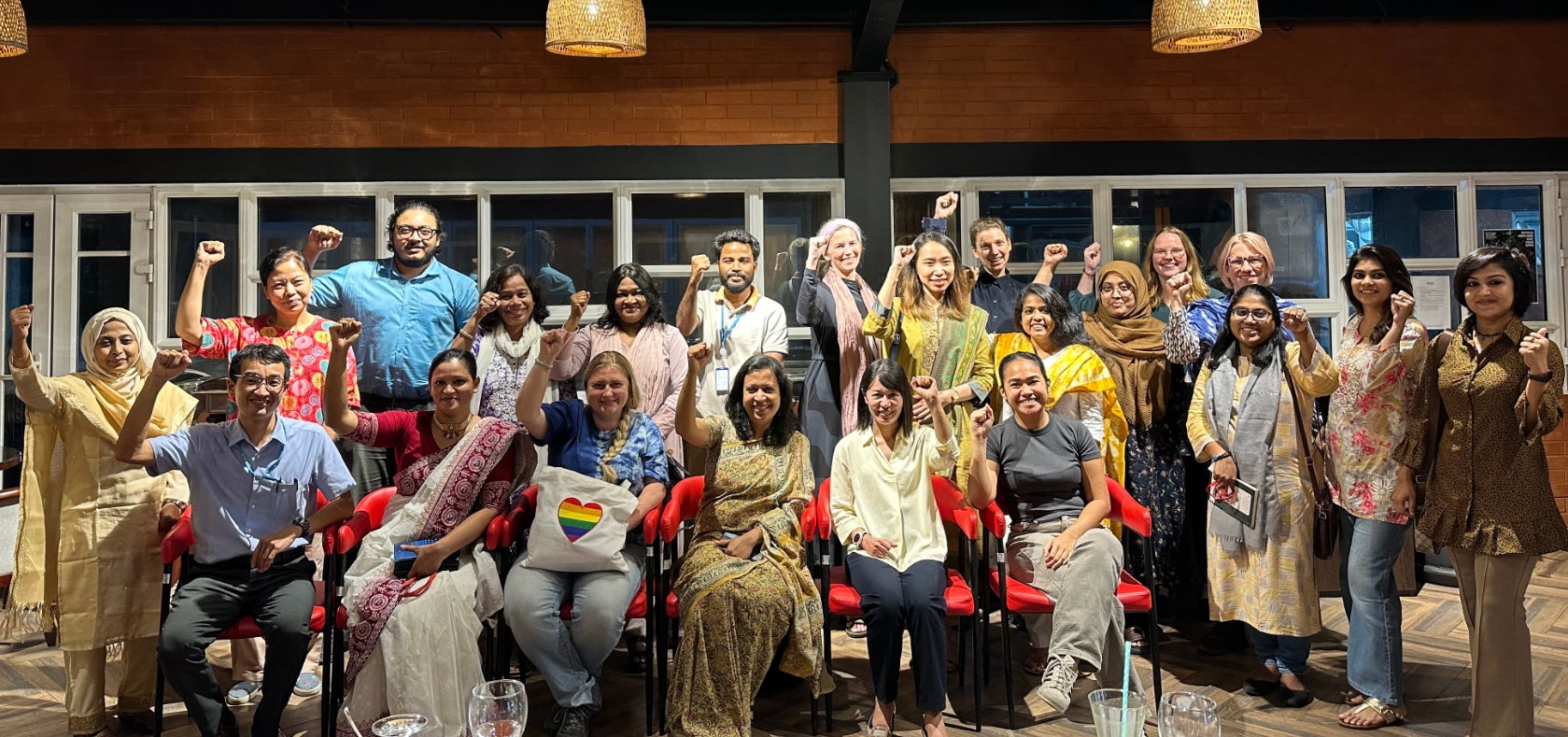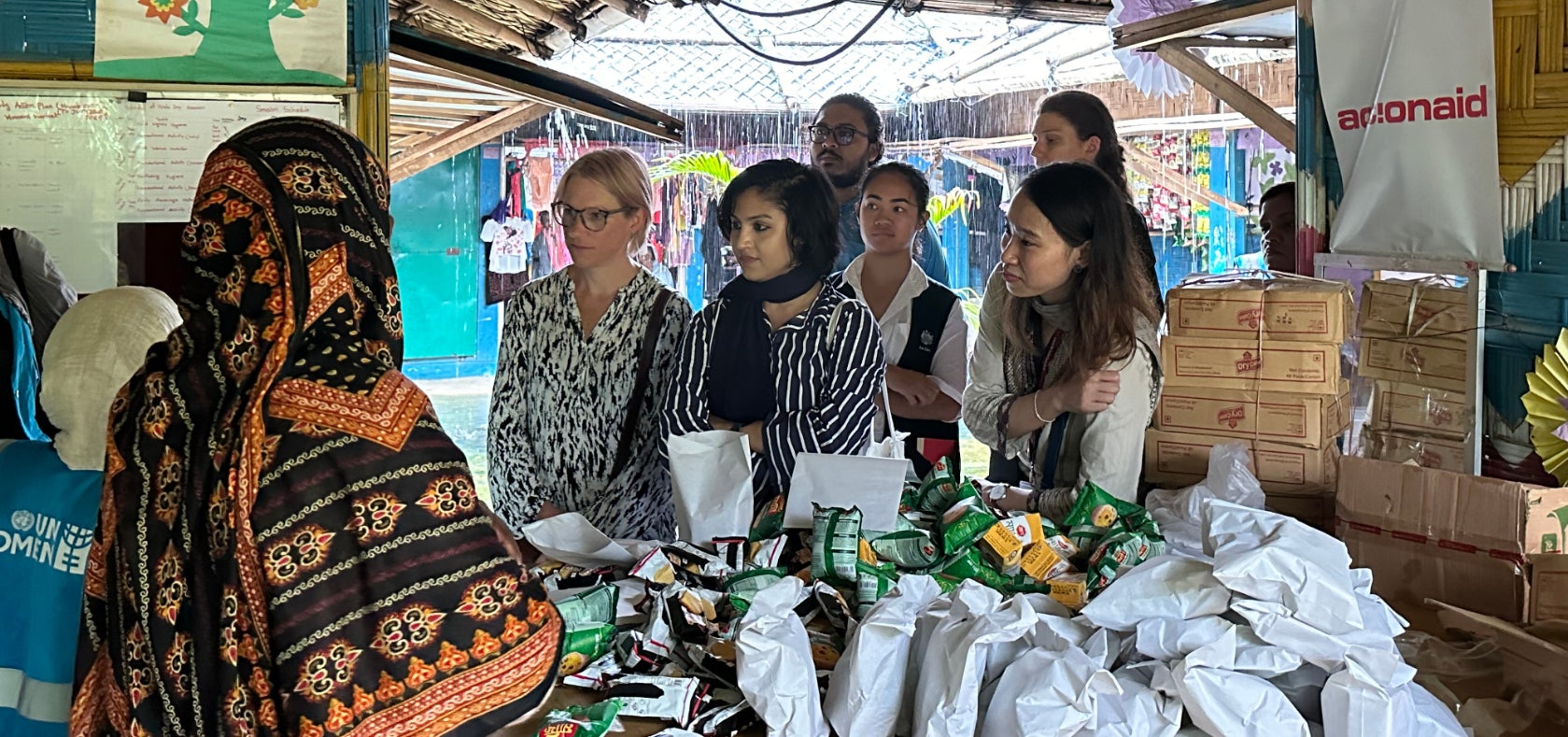Donors witness how UN Women and partners respond to the needs of women in Cox’s Bazar
Date:
Author: Magfuzur Rahman Shana

As the sun sets over in Cox’s Bazar – a time of day that breeds insecurity for many refugees in this southeastern part of Bangladesh that hosts the largest refugee camp in the world – a group of women and girls gathers to find hope and dreams in the transformations taking place.
From 1–2 July 2024, eight delegates from the Australian Department of Foreign Affairs and Trade (DFAT), the Embassy of Japan in Bangladesh, the Swiss Agency for Development and Cooperation (SDC), and the Swedish International Development Cooperation Agency (Sida) took part in a joint monitoring mission that kicked off with an evening roundtable at the UN Women Sub-Office in Cox’s Bazar. All four donors are supporting UN Women programming in the area and the objective of the mission was to see how the activities they support are responding to the needs of women and men affected by crisis, share learning and identify issues requiring further attention.
“Short project periods and staff retention issues are big challenges,” said Sheuly Sharma, Executive Director of Jago-Nari Unnayan Sangstha (JNUS), a women’s rights organization from Bangladesh that shared its experiences at the roundtable. “JNUS advocates for a ‘bottom-up approach’ to project development to better serve local needs and ensure long-term impacts. With support from UN Women, JNUS has strengthened its organizational capacity and overcome struggles to establish itself more sustainably. Today, JNUS collaborates with several different donors and partners.”
During the visit, the delegation toured the Women’s Centre in Camp-14, known as a “Shanti Khana” (“space of peace”), as well as the Multi-Purpose Women’s Centres in Camp-4 and in Teknaf in the host community. They interacted with various women-led organizations running the centres and with beneficiaries, observing protection, livelihoods and skills development, education, health and family planning, and peer-to-peer support activities in these centres.

The delegation also visited the Women’s Market in Camp 5, a safe, gender-inclusive space where 24 Rohingya and host community shopkeepers sell their products. They listened to women’s stories about their sales, profits, feelings and how they became shopkeepers.
Throughout the visit, the delegation had discussions with project beneficiaries and volunteers involved in activities, listening to their aspirations and challenges related to their current living conditions, the impact of gender norms on their lives, and the insecurities they are facing.
Rohingya and host community women and women-led organizations have played pivotal roles in the humanitarian response in Cox’s Bazar since the onset of the crisis in 2017, and all four donors are supporting their initiatives. Discussions and meetings with these organizations during the two-day mission provided valuable opportunities to exchange knowledge, learnings and to build relationships.
“In our community, frontline roles are predominantly held by men rather than women, such as in decision-making and earning potential. My aim is to contribute to my family, ensuring my children have the opportunity to live a good life and attend school regularly,” shared Johora Akter, a community-based volunteer at UN Women’s Multi-Purpose Women's Center (MPWC) in Whykong.
UN Women’s work with Rohingya refugees and in host communities in Cox’s Bazar is supported by the Australian High Commission in Bangladesh, the Embassy of Japan in Bangladesh, the Embassy of Switzerland in Bangladesh, and the Embassy of Sweden in Dhaka.